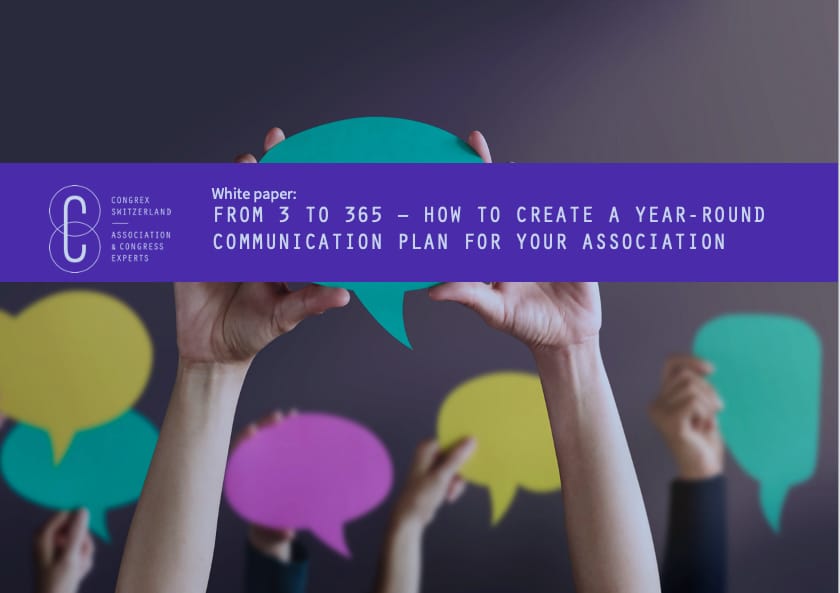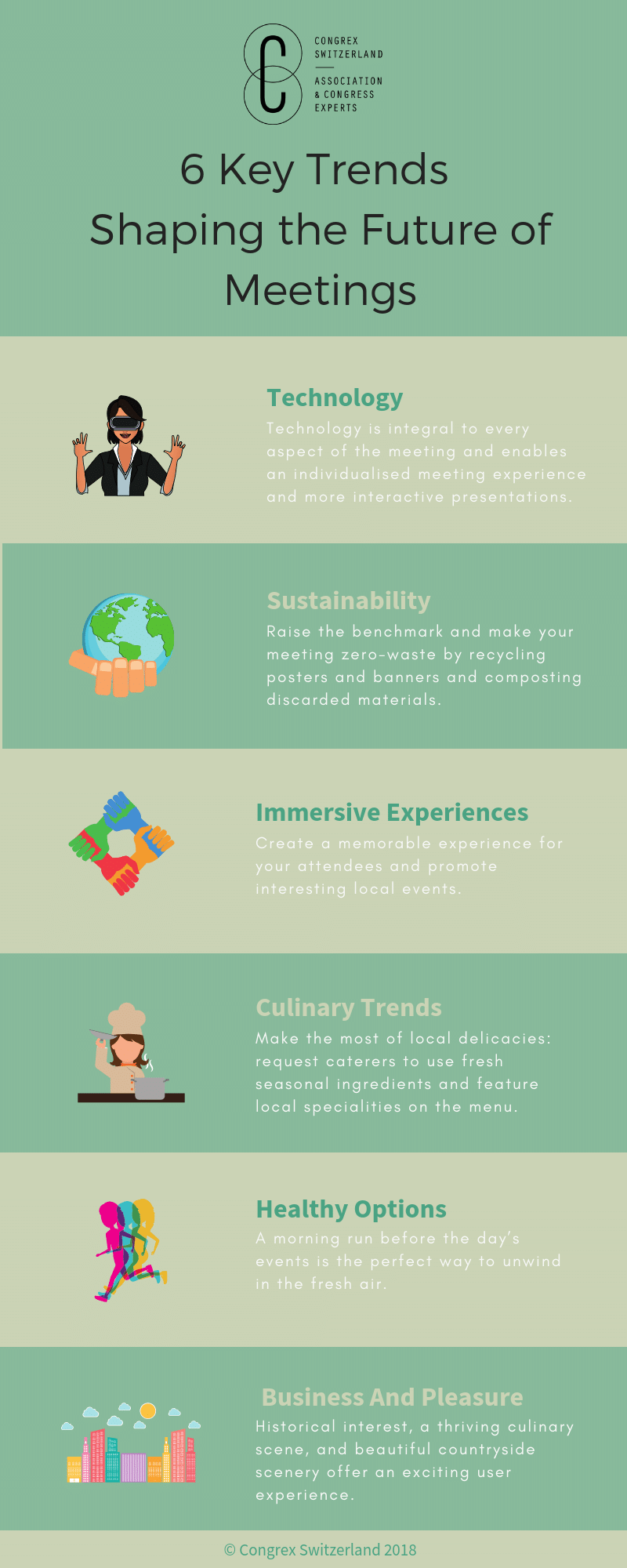Although virtual and hybrid events are here to stay, in 2023, in-person events are back and require a carefully orchestrated planning process that accounts for new requirements and challenges.
This article shares updated guidelines and tips for planning a successful conference that attracts and delights an international audience.
Current challenges in international conference planning
Conference success is defined along two main dimensions:
- The positive impact the event has on the attendees
- The event’s ROI and profitability.
Balancing these two factors has always been complex, but in the current climate, the difficulties have escalated. Conference planners must now perform the balancing act between designing a high-impact transformational event and turning a profit, with a set of added challenges, which include:
- Rising costs due to inflation.
- Staffing issues.
- Supply chain problems.
At a practical level, the challenge lies in containing costs without this having a detrimental effect on target audience engagement. We will now look at how to approach international conferencing planning while successfully handling these issues.

Top guidelines for international conference planning
1. Determine the event’s goals
The first item in any conference planning checklist is determining the event goals. Consider the following factors:
- What does your organisation want to achieve internally? (e.g., revenue growth, increasing leads, exploring new markets, etc.).
- What does your organisation want to achieve externally? (e.g., an enhanced reputation, relationship building, attendee satisfaction, etc.).
The conference goals will often be a mix of internal and external objectives. In this situation, it may help to identify which goal has the highest priority and how well it fits SMART goal criteria.
2. Set a budget
SMART conference goals are achievable, primarily determined by your budget. Key steps in this direction include:
- Start planning your budget early. Supply chain issues mean that reliable vendors are fewer and in high demand, so anticipate delays in getting accurate quotes.
- List fixed, variable, and unexpected expenditures.
- Consider estimated ticket prices and their sales revenue.
- Determine potential sponsorship revenue.
Related: Proactive budgeting for conferences
3. Appoint a planning team
Next, determine how goals will be tracked and measured and who will do this. You want to rely on a team with project management skills and give them the necessary tools and resources.
If your organisation is affected by staff shortages or your current team needs to be more experienced, plan training well in advance to ensure the team has the necessary capabilities to support event goals.
4. Choose a date and location, and book your venue
International conferences must be planned months or even years in advance, even more so in the current scenario.
Regarding the date, you will need to be flexible. Event planners are working so far in advance that your venue may be fully booked.
Ideally, you want a location near an airport. However, you must account for the rising costs of business travel, with overall increases exceeding 25% in airfare, train, and car travel. It’s best to choose frequently serviced destinations that require few connections to counter potential travel disruption.
Staff shortages may also affect the chosen venue, and some services may not be available. You’ll want to ensure the venue has a reasonable staff-to-delegate ratio or consider venue layouts that aren’t labour-intensive. Also, enquire about the use of technology that can help with staffing issues (e.g. self-check-in, virtual desk support via event app, etc.).

5. Arrange accommodation
On average, accommodation costs are 20% higher than in 2019, and further rises are expected into 2024.
You want to make accommodation arrangements earlier in the planning timeline. Some event planners suggest searching for accommodation providers with flexible attrition clauses (e.g. where penalties are based on a sliding scale).
6. Develop a high-impact programme
A compelling agenda can attract attendees in numbers high enough to meet the event’s financial goals. The programme can be delivered over fewer days or fewer sessions to help with costs. Length doesn’t determine impact, but relevant content and high-calibre speakers do.
Consider shorter sessions or a balanced mix of standard and creative content. Presentations and panel discussions have their place in modern conferences, as do interactive and creative sessions that encourage dialogue and co-creation. You can find some ideas on innovative session formats here.
Remember to include networking opportunities that allow for both personal and professional growth. Account for language barriers and facilitate the process with matchmaking software.
Lastly, well-being is an essential consideration of a high-impact conference programme. Consider collaborating with new sponsors to promote your conference as a safe and inclusive event where attendee satisfaction comes first.
7. Secure sponsorships
With the conference agenda and sponsorship packages ready by tier, approach potential sponsors. Remember that they may also be affected by rising costs, staffing or supply chain issues, so finding common ground along these lines can help secure the deal.
Focus on the immediate value the event can deliver but highlight the long-term nature of the relationship and the possible ongoing value-creation opportunities.
You can work with a PCO who knows sponsors in your vertical and can connect you with the most suitable options through sponsorship planning services.
Related: How to Get the Most Out of Your Conference Budget
8. Attract high-impact keynote speakers
High-profile speakers may be in high demand and out of budget – even if you opt for ‘simulive’ (webinar) or live streaming, as their fees don’t usually change. Alternatively, focusing on the impact speakers can make on the audience may be a better approach.
Good rapport is essential, so start building the relationship early in the planning process and be open to a collaborative approach where speakers can contribute their ideas.
You can always sell speaker sponsorships if you operate on a tight budget.
Related: Finding Speakers for Your Next Event or Conference: Five Essential Steps for Success

9. Promote your event online
In a professional conference website, sound design and ease of navigation create a strong impression that tells delegates what they can expect from in-person attendance.
Equally important is to deliver engaging content via the website in the months leading to the event. Content doesn’t just have to be programme related. International attendees will benefit from content that helps them become familiar with the location, customs, things to do in the area, and updated travel tips.
Remember that catering to an international audience means the content must be translated into major languages.
Next, you want to create a social media marketing calendar in selected social media platforms and appoint a team to implement your advertising and promotion activities there.
Related: Complete guide to conference social media marketing
Other ideas include:
- Ask sponsors and partners to promote your conference on their platforms.
- Contact relevant industry publications and enquire about marketing opportunities.
10. Engage with an international audience
The conference website and social media platforms are the first points of contact with potential attendees. But to reach a global audience, it’s recommended to use both inbound and outbound marketing techniques.
Email marketing is an outbound strategy that can complement the event’s online presence and engage with the audience on a one-to-one basis.
Relevance, consistency, and personalisation in promotional materials and email communication are keys to meaningful dialogue, leading to higher registration numbers.
11. Be adaptable
Some challenges can be anticipated and managed, while others are entirely unexpected. To help handle challenges effectively, cultivate adaptability in your planning team. Always have a plan B outlined and specify the procedures to communicate and address unforeseen issues.
It may be worth seeking professional advice to ensure solid planning efforts. Working with a PCO can strengthen your response to unforeseen circumstances with minimal impact on the attendee experience.
At Congrex, we have the experience and skills to help you plan a successful international conference satisfying all stakeholders. Contact our team for more details.








